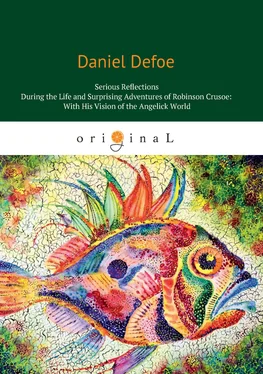Upon this consideration I question much whether a covetous, narrow, stingy man, as we call him, one who gives himself up to himself, as born for himself only, and who declines the advantages and opportunities of doing good, I mean extremely so I say, I much question whether such a man can be an honest man; nay, I am satisfied he cannot be an honest man, for though he may pay every man his own, and be just, as he thinks it, to a farthing, yet this is part of the justice which, in the common phrase, is the greatest injustice. This is one meaning of that saying, summum jus, summa injuria.
To pay every man their own is the common law of honesty, but to do good to all mankind, as far as you are able, is the chancery law of honesty; and though, in common law or justice, as I call it, mankind can have no claim upon us if we do but just pay our debts, yet in heaven’s chancery they will have relief against us, for they have a demand in equity of all the good to be done them that it is in our power to do, and this chancery court, or court of equity, is held in every man’s breast – ‘tis a true court of conscience, and every man’s conscience is a lord chancellor to him. If he has not performed, if he has not paid this debt, conscience will decree him to pay it, on the penalty of declaring him a dishonest man, even in his own opinion; and if he still refuses to comply, will proceed by all the legal steps of a court of conscience process, till at last it will issue out a writ of rebellion against him, and proclaim him a rebel to nature and his own conscience.
But this is by the way, and is occasioned by the observations I have made of many people who think they are mighty honest if they pay their debts, and owe no man anything, as they call it; at the same time, like true misers, who lay up all for themselves, they think nothing of the debt of charity and beneficence which they owe to all mankind.
Rich men are their Maker’s freeholders; they enjoy freely the estate He has given them possession of, with all the rents, profits, and emoluments, but charged with a fee farm rent to the younger children of the family, namely, the poor; or if you will, you may call them God’s copy holders, paying a quit-rent to the lord of the manor, which quit-rent he has assigned for the use of the rest of mankind, to be paid in a constant discharge of all good offices, friendly, kind, and generous actions; and he that will not pay his rent cannot be an honest man, any more than he that would not pay his other just debts.
The Scripture concurs exactly with this notion of mine; the miser is called by the prophet Isaiah a vile person, one that works iniquity, and practises hypocrisy, and utters error before the Lord (Isaiah xxxii. 6). How does this appear? The very next words explain it. “ He makes empty the soul of the hungry, and he will cause the drink of the thirsty to fail.” But lest this should seem a strained text, let us read on, both before and after verse 5. “ The vile person shall no more be called liberal, nor the churl said to be bountiful.” Here the opposite to a liberal man is called a vile person, and the opposite to a bountiful man is called a churl; and in the verse following, the same vile person, as opposed to the liberal man, is called a wicked man, and the liberal man is set up a pattern for us all, in opposition to the vile, churlish, covetous wretch. – Vers. 7, 8. “ The instruments also of the churl are evil: he deviseth wicked devices to destroy the poor with lying words, even when the needy speaketh right; but the liberal deviseth liberal things, and by liberal things shall he stand.”
In a word, I think my opinion justified by this text, that a churl, a morose, sour disposition, a covetous, avaricious, selfish-principled man, cannot be an honest man: he does not pay the common debt of mankind to one another, nor the fee-farm or quit-rent of his estate to God, who is his great landlord or lord of the manor, and who has charged the debt upon him. I know the miser will laugh at this notion, but I speak my own opinion, let it go as far as reason will carry it.
I come back to the examples I was giving in my private case. As the widow was honest to me, so was my good Portuguese captain; and it is this man’s original honesty that makes me speak of the honest man’s debt to mankind. It was honesty, a generous honesty, that led the poor man to take me up at sea, which, if he had neglected, my boy Xury and I had perished together; it was no debt to me in particular, but a debt to mankind, that he paid in that action, and yet he could not have been an honest man without it. You will say, if he had gone away and left me, he had been barbarous and inhuman, and deserved to be left to perish himself in the like distress; but, I say, this is not all the case; custom and the nature of the thing leads us to say it would have been hard-hearted and inhuman, but conscience will tell any man that it was a debt, and he could not but be condemned by the court of conscience in his own breast if the had omitted it – nay, in the sight of Heaven he had tacitly killed us, and had been as guilty of our death as a murderer, for he that refuses to save a life thrown into his hands takes it away; and if there is a just retribution in a future state, if blood is at all required there, the blood of every man, woman, and child whom we could have saved, and did not, shall be reckoned to us at that day as spilt by our own hands; for leaving life in a posture in which it must inevitably perish, is without question causing it to perish, and will be called so then, by whatever gilded dressed-up words we may express and conceal it now.
But I go farther, for my good Portuguese went farther with me; he not only paid the debt he owed to Heaven in saving our lives, but he went farther – he took nothing of what I had, though, in the common right of the sea, it was all his due for salvage, as the sailors call it; but he gave me the value of everything, bought my boat, which he might have turned adrift, my boy Xury, who was not my slave by any right, or, if he had, became free from that time; and the life of Xury, which he had saved, as a servant, was his own, yet he bought everything of me for the full value, and took nothing of me, no, not for my passage.
Here was the liberal man devising liberal things, and the sequel made good the promissory text, for by these liberal things the honest liberal man might be truly said to stand. When I came to reward him at my coming to Lisbon to sell my plantation at Brazil, then he being poor and reduced, and not able to pay even what he owed me, I gave him a reward sufficient to make his circumstances easy all his life after.
The bounty of this man to me, when first he took me up out of the sea, was the highest and most complete act of honesty – a generous honesty, laying hold of an opportunity to do good to an object offered by the providence of Heaven, and thereby acknowledging the debt he had to pay to his Maker in the persons of His most distressed creatures.
And here also let me remind my readers of what, perhaps, they seldom much regard; it is not only a gift from Heaven to us to be put in a condition of doing good, but ‘tis a gift, and a favour from Heaven, to have an opportunity of doing the good we are in a condition to do, and we ought to close with the opportunity, as a particular gift from above, and be as thankful for it, I say, as thankful for the occasion of doing good, as for the ability.
I might mention here the honesty of my fellow-planter in the Brazils, and of the two merchants and their sons, by whose integrity I had my share in the plantation preserved and taken care of; as also the honesty of the public treasurer for the church there, and the like; but I am earned off in my thoughts, to enlarge upon this noble principle, from the two examples I have already mentioned, viz., the Guinea captain’s widow and the Portuguese; and this in particular, because, since I came to England to reside, I have met with abundance of disputes about honesty, especially in cases where honest men come to be unhappy men, when they fall into such circumstances as they cannot be honest, or rather, cannot show the principle of honesty which is really at the bottom of all their actions, and which, but for those circumstances which entirely disable them, would certainly show itself in every branch of their lives; such men I have too often seen branded for knaves by those who, if they come into the same condition, would perhaps do the same things, or worse than they may have done.
Читать дальше











